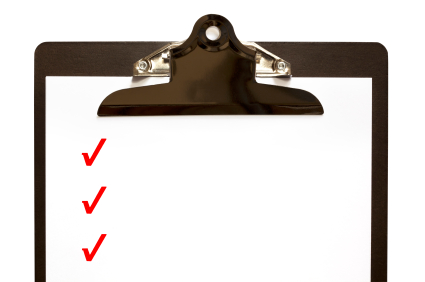Multifamily Property Inspection Checklist
So, you’ve negotiated and signed the contract, and the property is almost yours. Now what? Next up are the property inspections that must be performed during the due-diligence period. The main goal of every property inspection is to confirm that the property is indeed a good, solid purchase. The best way to perform this inspection is to have a thorough checklist to make sure everything is accounted for.
Here are the top 9 things you need to make sure are on your checklist for a successful inspection. Overall, you’re making sure the investment checks out. The three things you want to determine during an inspection are: any life safety issues that need to be fixed (issues you could be held liable for), deferred maintenance items that need to be corrected and budgeted for, and if the financials are what the seller told you they were before the contract.
Multifamily Property Inspection Checklist:
- Mechanical Inspections – Mechanical inspections consist of inspecting the systems that provide comfort to your tenants. Those systems include the plumbing, electrical, and heating ventilation and air conditioners or HVAC systems. The main systems should be checked out by certified professionals in their respective categories. These systems can be costly to replace and can take up a significant portion of your repair and maintenance budgets if they are in poor shape.
- Roofs – The roofs and foundations are essential to a solid investment property. Replacing roofs can be one of your biggest replacement items and can make a big difference in your insurance coverage. Make sure you know how much life is left in the roofs and if their end of life is approaching, make sure you budget for replacing them either up front or through the operations of the property.
- Foundations – Solid foundations can make or break your investment. Problems can be hard to spot and easy to cover up without looking closely with a trained professional. A couple things you can look for are vertical cracks and uneven floors.
- Unit Inspections – Walking through each unit is critical in determining the property condition and the quality of your tenants. We recommend walking each and every unit and looking for the general condition, problems that need to be addressed, and potential costs that will need to be incurred when that tenant moves out and before another can move in. This will help you budget for future repairs and maintenance or turn costs (costs incurred in bringing the unit up to leasable standards between tenants).
- Lease Audits – Another inspection we recommend is auditing the leases. The goal of this inspection is to identify rent roll discrepancies and tenant specific information. We recommend comparing the rent roll with the leases, reviewing background checks, and looking for any special tenant-specific changes to the lease. For example, during a lease audit you want to make sure the rent amounts on the rent roll and lease match and that there isn’t a special clause in the tenant’s lease allowing them free rent for six months.
- Financial Audits – During financial audits you want to go back and verify that the financial information sent to you before you put in your offer matches with the actual financial information. Here you can verify deposits, bills, and bank statements to make sure you are getting exactly what you thought you were financially.
- Service Contracts – It’s a good idea to review service contracts. Service contracts consist of contracts for services performed on your property. Many of them survive a sale. Some examples of service contracts are those for lawn care, snow removal, trash service, and laundry machines.
- Utilities – During the inspections, it’s a good idea to verify utility bills for which you will be responsible. These consist of water, gas, electrical, and sewer to name a few of the most common. They can also consist of HOA dues, etc.
- Laundry Contracts – I know we already mentioned laundry contracts in the Service contract section, but I think this one warrants a little more attention. Laundry contracts are notorious for being nearly impossible to get out of. Make sure you read the contract thoroughly before closing. Many of them will allow you a 30-day window to cancel or change the contract upon transfer of ownership, but you have to make sure you follow all the details very closely.


